The Biden administration announced its intention to rejoin the U.N. Human Rights Council again. However, China and other countries are moving to rewrite the norms of the Council to undermine human rights. Ted Piccone explores how the U.S. can reengage and ensure that UNHRC does not fall prey to China’s goal of gridlock. This article was originally posted on BTI Transformation Index.
As the Human Rights Council (HRC), the United Nations’ highest body for human rights, convenes this month for its first 2021 session, the perennial doubts resurface about its membership and effectiveness as a multilateral actor for upholding fundamental rights. Some recent developments, however, may merit a more serious look at the opportunities for reform as it marks its 15th anniversary.
For one, the United States has announced its intention to reengage immediately with the HRC as an active observer and to compete for a seat this fall after the Trump administration abandoned it in 2018. If past experience is a guide, this may help strengthen the cross-regional coalitions needed to address acute crises as well as to advance longer term reform. On the other hand, China is becoming more adept at flexing its muscle to undermine well-established norms and practices for monitoring and action, and bringing a widening circle of client states along with it.
The Membership Challenge
What has not changed is the fact that, as the highest UN political body representing the interests of a diverse array of countries, the HRC is a highly competitive forum for shaping the international human rights regime. Who sits on the body, and what leverage they bring to bear on its deliberations, determine whether and what type of collective action is taken. Membership elections themselves, however, are not as competitive as they should be and result in seats for governments whose main aim is to block any meaningful action. Why do certain states continue to get elected despite having human rights records so far from the standard that the UN General Assembly (UNGA) has set for itself, requiring Council members to uphold the highest standards in the promotion and protection of human rights?
The answer lies in part in understanding the dysfunctional way in which states are elected to the Council – through backroom deals, closed slates, and secret ballots. By design, the 47-member Council represents the general UN membership according to regional blocs: 13 seats each for Africa and Asia (including the Middle East), 8 for Latin America and the Caribbean, 7 for Western Europe and “other states” (USA, Canada, Israel), and 6 for the Eastern European group (including former Soviet Union states). Each October, these blocs offer either a unified slate for HRC elections or a competitive slate. In theory, both options offer the possibility of denying a seat to an unqualified government, either by eliminating a poorly-performing candidate in a competitive slate scenario, or by preventing it from garnering a majority vote through abstentions in a clean slate situation. In practice, only the former has transpired: competitive slates have led to defeats for undeserving states on multiple occasions since the HRC was founded in 2006, including Russia in 2016, Iraq in 2019, and Saudi Arabia in 2020. Membership rules also allow states on the Council, which are engaging in a pattern of gross and systemic abuses, to be removed by a two-thirds vote of the UN General Assembly, as has occurred once (Libya under Muammar Gaddafi).
If states honestly considered a country’s adherence to international human rights standards, the Council membership would probably look quite different than what we have today. Among the states that fall dramatically below an objective threshold of respect for human rights, but nonetheless repeatedly get elected to the Council, are Cuba, Venezuela, China, Russia, and Egypt. Other outliers recently elected include Eritrea (already under special HRC scrutiny for its record of gross and systemic abuses), Burkina Faso, Libya, Cameroon, Somalia, Bahrain, Uzbekistan, and Togo.
Governments that voted for these states ought to consult the abundant evidence demonstrating their failure to protect universal rights, starting with reports from the HRC’s independent experts and from human rights defenders on the ground. In addition, a check of independent surveys of civil and political rights conducted for the Bertelsmann Transformation Index (BTI) and the World Justice Project’s Rule of Law Index (WJP) quickly reveals how poorly these states perform compared to other candidates both globally and regionally. Venezuela, for example, received the lowest global scores in WJP’s Index for the right to life and security, due process and rights of the accused, and right to privacy, while China, rated as a hard-line autocracy by BTI, scored particularly low on freedom of association and expression on its ratings. Costa Rica, on the other hand, which consistently scores among the highest performers on human rights and rule of law in the region, lost its bid for a seat in 2019 to Venezuela.
The China Challenge
Despite these examples, states with better scores on established human rights scales consistently make up a slight majority of the Council’s membership. When they work together, these states have moved the Council to make important and positive contributions to address human rights crises around the world. Unfortunately, however, some of these same countries are wedded to outdated doctrines of noninterventionism in their foreign policies (e.g., South Africa, India, Philippines), usually rooted in their aversion to international criticism of their many shortcomings. Many of these same states are also increasingly subject to the predations and persuasive pull of a rising China, which is growing more confident not only about defending its own domestic record but moving to offense on rewriting the norms and practices of UN scrutiny.
Evidence from the last few years demonstrates both points. When China is criticized by governments, human rights groups, and the media for its notorious record of violations against the Uighurs in Xinjiang, or more recently its crackdown in Hong Kong, Chinese diplomats go into overdrive in blocking any official resolution condemning such behavior. In July 2020, for example, China rallied 53 countries, including 13 states then sitting on the Council, to defend its harsh interventions in Hong Kong against peaceful protest, while only 27 states signed a statement criticizing Beijing’s actions. In a similar incident in July 2019 regarding competing statements on China’s mass detention policies in Xinjiang, China won over 20 states sitting on the Council at that time or since elected to the body.
China deploys similar tactics for its campaign to rewrite the rules for the HRC’s critical scrutiny of states’ human rights records under the guise of “mutually beneficial cooperation,” a term meant to eliminate “name and shame” resolutions in favor of “constructive dialogue” with the offending state. While China’s transparent game to “reposition international human rights law as a matter of state-to-state relations…with no meaningful role for civil society” lost some earlier supporters in 2020, it still managed to win over 23 states, including Argentina, Brazil, Mexico, Namibia, and Uruguay.
The Way Forward
Despite these troubling realities, the Council on balance does more good than harm to the cause of human rights in the world. Tools such as the Universal Periodic Review, the independent special rapporteurs and commissions of inquiry, and convening of special sessions on urgent crises like in Syria and Myanmar, contribute vital knowledge about violations on the ground and generate political pressure for accountability and reform. On these grounds alone, the Biden administration is right to reengage, and even more so now given the dangerous role that China and its friends are playing to weaken the body.
As it does so, the Biden team would be wise to build support both in the UNGA and the U.S. Congress for a strategic repair of the Council’s deficiencies. For example, it should invest some effort to rewrite the rules for Council elections, e.g., by requiring competitive slates, transparent voting, higher voting thresholds, and standing invitations for country visits by the HRC’s independent experts. The United States will push hard to eliminate the stain of a permanent agenda item on Israel. It should also lead by example by welcoming scrutiny of the U.S. record on such issues as civil rights and police violence and consulting closely with civil society. These steps, combined with some diplomatic muscle to build pro-human rights coalitions, would help fulfill President Biden’s “America is back” promise and ensure the Council does not fall prey to China’s goal of a weak and gridlocked human rights system.
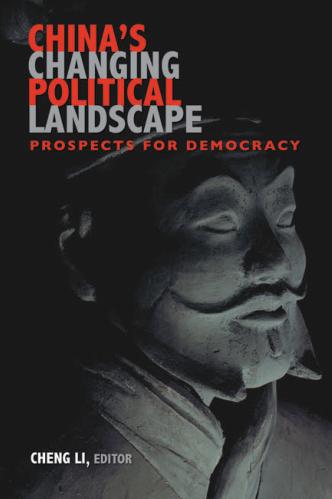
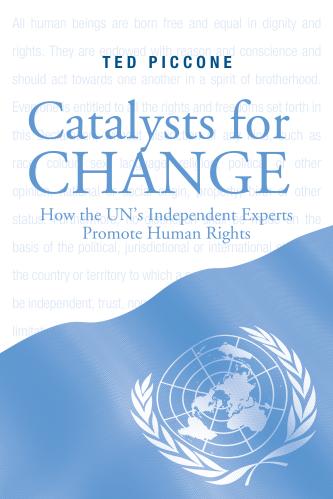
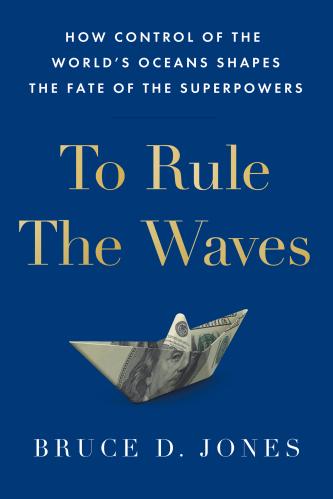
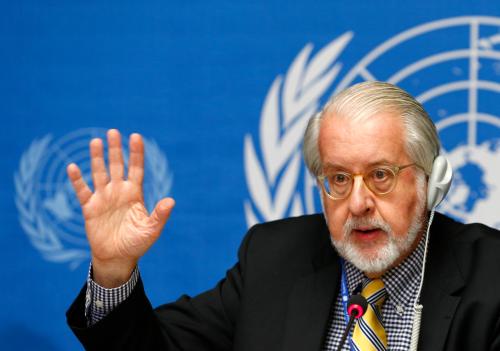
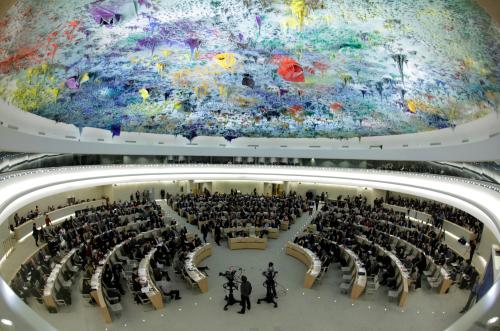
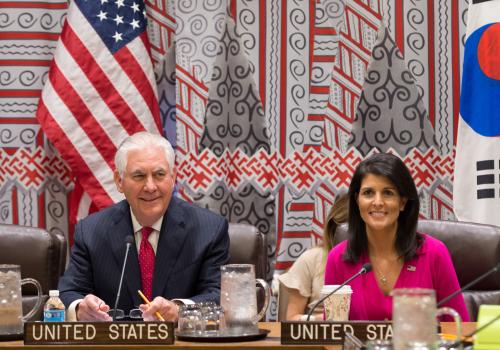



Commentary
UN Human Rights Council: As the US returns, it will have to deal with China and its friends
February 25, 2021